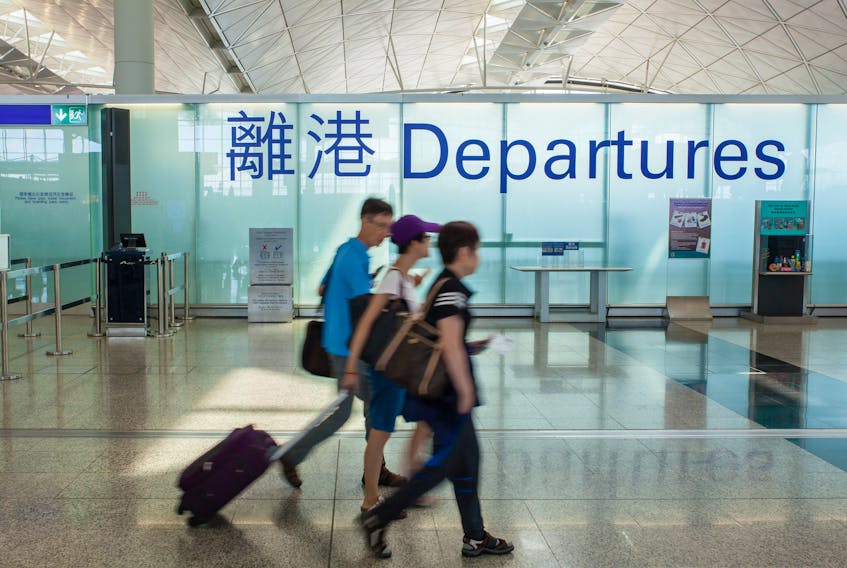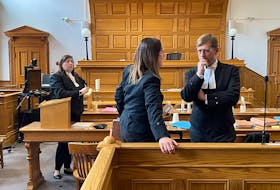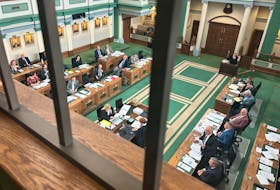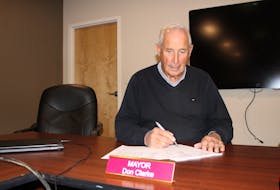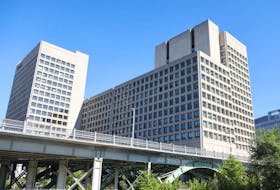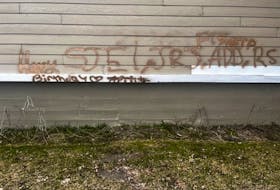HONG KONG — Vanessa Rodel was so afraid to believe the news, she asked her lawyer to repeat it, five times.
But each time, the message she had longed to hear was exactly the same, and each time it was every bit as momentous: Rodel, a Filipino national, and her seven-year-old daughter Keana would finally be leaving Hong Kong for a new life thousands of kilometres away in Canada, ending a decade of suspended animation here that was punctuated by their unexpected role in one of the century’s biggest news stories.
The pair stepped off a 15-hour flight to Toronto Monday, granted refugee status by Canada six tense years after they themselves provided refuge to American whistleblower Edward Snowden, a contractor for a U.S. spy-agency who in 2013 became the world’s most wanted man after leaking details of U.S. mass-surveillance programs.
Their acceptance marks the first breakthrough for a Canadian team trying to help the three asylum-seeking families who hid Snowden, and who believe they have been harassed and targeted for deportation as a result.
“I really couldn’t believe it: ‘Is this really true?’” Rodel, 42, recalled of that late-night January phone call with Canadian lawyer Rob Tibbo. “I was so extremely happy. I said ‘My birthday is coming and Keana’s birthday is coming … This is a very good present for me.’”
Entering Toronto’s Pearson airport before she and her mother fly Tuesday to their new home in Montreal, Keana beamed as someone placed a Montreal Canadiens cap on her head.
“Now we are permanent residents in Canada and we are safe and free,” a bleary-eyed Rodel declared later. “Thank you Canada and Quebec.”
Her eagerness to get here was plain to see when the National Post met them on Saturday; mother and daughter’s minuscule apartment on Hong Kong’s Lantau Island was already stripped bare, the pair’s worldly possessions stuffed into a couple of suitcases and a handful of packing boxes.
My birthday is coming and Keana’s birthday is coming … This is a very good present for me
Yet their story is bittersweet.
The others who helped Snowden — a Sri Lankan couple with two young children and another single Sri Lankan man — are still awaiting word on whether Canada will accept them as refugees. And the long years as second-class citizens in Hong Kong — with the ever-present threat of being returned to the countries they fled in fear — seem to be having a dire impact.
Supun Kellapatha, father of the two children, was hospitalized Friday due to increasingly fragile mental health; only his last-ditch court challenge now stands in the way of his being forced back to Sri Lanka.
“His life has been unraveling the last six months, completely unraveling,” said Tibbo. “This uncertainty of what will become of his life after 15 years in Hong Kong is taking its toll.”
Montreal lawyer Marc-André Séguin, who has spearheaded the effort to bring the families to Canada, believes Ottawa is needlessly dragging its feet on the cases, and blames in part the radioactive nature of the Snowden story.
Meanwhile, the charity the lawyers set up to aid their clients, For the Refugees, is running short of money; the organizers hope a crowd-funding campaign can replenish the coffers. The lawyers themselves have been working for free, making regular trips to Hong Kong on their own time.
This uncertainty of what will become of his life after 15 years in Hong Kong is taking its toll
The refugees’ story first came to light in 2016 when Tibbo revealed that three years earlier he had persuaded them to open their doors to Snowden.
The former National Security Agency contract worker was able to disappear for two weeks by staying in their homes, before surfacing and taking a flight to Russia.
Tibbo, a Montrealer who had been practising in Hong Kong for years when Snowden retained him to assist as he fled from the U.S., said he decided to expose the refugees’ role after learning the episode would be featured in a Hollywood movie.
But in the wake of the news reports, Hong Kong authorities began what appeared to be a wide-ranging campaign against the migrants and their lawyer, which included suddenly reactivating their long-dormant refugee applications — then denying all of them on the same day. (Hong Kong does have an abysmal record in the area, rejecting over 99 per cent of asylum claims.)
Tibbo himself eventually fled the city, convinced the police were about to arrest him on trumped-up charges.
Hong Kong authorities have denied there was any kind of persecution. But the bid to bring the refugees who helped Snowden to Canada began all the same.
Séguin told the Post there are few if any other options for them.
Hong Kong bars the UN High Commission for Refugees (UNHCR) from pre-screening claimants on its soil, a prerequisite for most jurisdictions to accept refugees. Quebec’s immigration program may be the world’s only exception, permitting claimants to be assessed by Canadian visa officers instead of the UNHCR.
Knowing their clients could be deported at any time, the lawyers have fought to have that process expedited. But the consulate in Hong Kong has seemingly gone out of its way to avoid speeding up their cases, Séguin said, which he believes is to avoid any suggestion Ottawa is eager to assist those who helped Snowden.
“To grant special treatment to someone who sheltered the most important whistleblower in intelligence history is likely going to be a sensitive issue,” he said.
Immigration, Refugees and Citizenship Canada told the Post it would not comment on individual cases, citing privacy rules.
But when Séguin asked for a Federal Court order in 2017 that would admit the refugees into Canada while their files were considered, government lawyers warned such action could open the floodgates.
“Many others in precarious circumstances around the world are similarly situated” and if deteriorating conditions warranted bringing them all to Canada to process their claims, “this would be a major alteration and expansion of Canada’s approach to refugee protection,” Justice Simon Fothergill wrote in summarizing the federal government’s position.
Fothergill sided with Ottawa and rejected the request.
Each of the refugees, though, cites compelling reasons to avoid being sent back to their home countries, and for getting out of Hong Kong, one of the few places in Asia to which they were able to flee without a visa.
Rodel had been kidnapped by the New People’s Army — the armed wing of the Philippines Communist party that has been waging war there for decades — raped and sexually trafficked.
She fears that if deported to the Philippines she would again fall into the Communists’ hands, receiving little protection from the country’s corrupt security forces.
But life in Hong Kong — where adult refugee claimants are barred from working or going to school — has been brutal, says Rodel. She’s lived hand to mouth for much of the time, the tiny flat she and Keana shared until two years ago infested with cockroaches and mice, a prostitute next door entertaining a steady stream of customers.
Ajith Pushpa Kumara says he deserted the Sri Lankan army after being sexually assaulted by superiors, then was tortured when they later arrested him. He managed to get away and reach Hong Kong in 2003, and says he would likely be detained as soon as he set foot in his own country again.
But he left behind a daughter, now 17, missed his father’s funeral in 2011 and has struggled to cope with an existence devoid of work or education. His $900-a-month home on Hong Kong island is a single room, not much bigger than many Canadians’ master bathrooms.
“My life is half-finished in Hong Kong. Fifteen years of my good life, finished, no more, zero. I cannot make money, I cannot be with my family, my daughter,” he said in an interview. “I feel like a dead person.”
Nadeeka Kuttige fled to Hong Kong from Sri Lanka where she had been raped and held against her will by powerful individuals with connections to the government, said Tibbo.
Partner Supun, whom she met here, was hunted down and almost killed because of his relationship with a woman linked to an opposition political party, the lawyer said.
Their two children, Sethmundi, 7, and Dinath, 2, were born in Hong Kong.
Adding to the poignancy of Rodel’s departure is the tight relationship among the three groups, said Tibbo, with the children — all born in Hong Kong and thus considered stateless — enjoying an especially close bond.
• Email: [email protected] | Twitter: TomblackwellNP
By Tom Blackwell
Copyright Postmedia Network Inc., 2019

